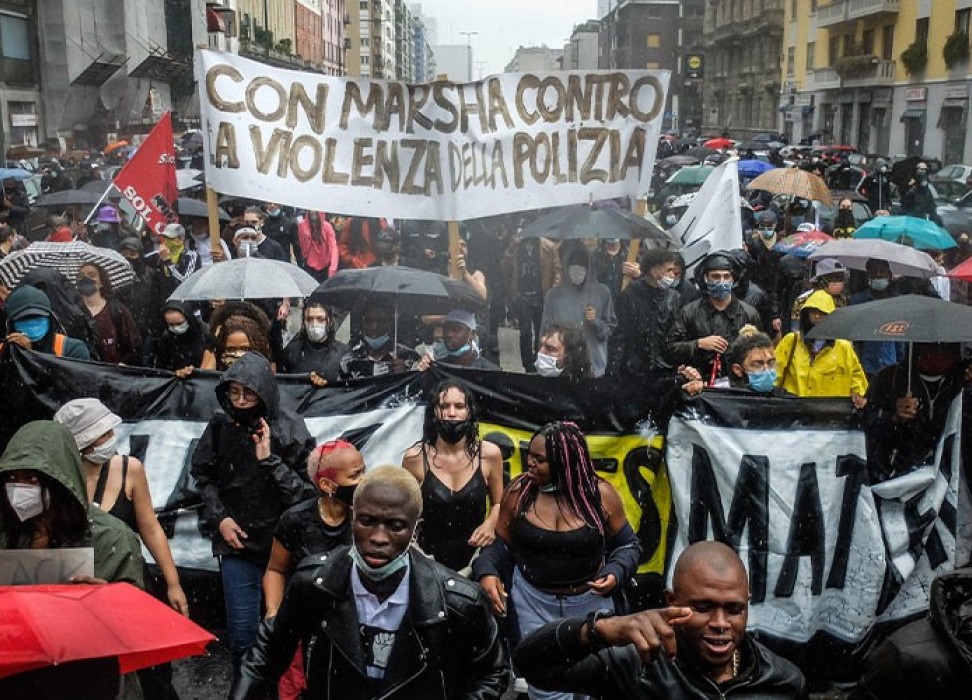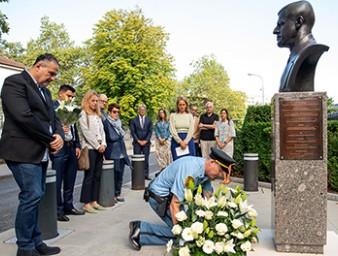UN Human Rights Committee provides new guidance on the right of peaceful assembly
15 December 2020

"As soon as General Comment 37 was released, we shared it with the government and extended an offer of support of technical advice on how to deal with protests in a manner that complies with human rights standards," said Fiona Adolu, UN Human Rights Adviser in Zimbabwe. "(It) also effectively signals that the UN is closely watching any developments around protests in the country."
In July 2020, the Human Rights Committee published General Comment 37 (GC 37) on the right of peaceful assembly, a right enshrined in Article 21 of the International Covenant on Civil and Political Rights. Article 21 provides that "the right of peaceful assembly shall be recognized," and allows limited circumstances in which it can be restricted. However, organizers, protesters, governments, law enforcement and members of the public often clash over how the right is exercised, and how it can be limited.
In places like Zimbabwe, GC 37 is a game changer, as it provides practical guidance on the rights and obligations of all involved.
"With the departure from power of the late President Mugabe, there was an air of excitement and, of course, hope for positive changes around civic rights including the right of peaceful assembly," Adolu said. "But the first real test of how the new dispensation would handle protests came during the August 2018 protests that took place immediately after the elections…security forces used excessive force resulting in the deaths of six people. Reports of security operatives going into communities to intimidate them against participating in protests have deterred others from taking to the streets to express themselves."
"The GC is a very comprehensive tool that we can now use to provide advice and guidance to authorities around their obligations to protect the right," she continued. "It is also going to be key in guiding civil society organizations in finding ways of litigating the right (of peaceful assembly)."
The GC 37's arrival has been timely. This past year has seen a massive increase in protests, with people taking to the streets globally to advance movements like Black Lives Matter, protest climate change and oppose COVID-19 restrictions. Yet governments often imposed significant barriers to the protests, and many devolved into violence.
Christof Heyns, the Committee's rapporteur for GC 37, said the new guidance can help mitigate some of this.
"It is clear that peaceful assembly plays a major role these days in shaping society," he said. "The GC was an opportunity for the Committee to give more clarity as to the rules of engagement for assemblies, for police, authorities, participants, bystanders…for everyone."
The GC 37 makes it clear that States have obligations not just to refrain from unduly interfering with peaceful assemblies, but also to proactively facilitate assemblies and protect participants. It also clarifies issues that have been at the forefront of recent movements. It acknowledges that the protection of the right extends to online assemblies and gatherings in private spaces. As a general rule, participants can wear masks. It also deals with when and how restrictions can be imposed, such as for the protection of public health during a pandemic. In combination with the UN Guidance on Less-Lethal Weapons, Heyns said, "the key rules on the management of assemblies have been restated and updated."
For activists, the practical guidance available in GC 37 is an important tool in any advocacy and national-level litigation they may undertake, said Francesca Fanucci of the European Centre for Not-for-Profit Law.
"The challenge now is in making sure that activists know about its existence, but also that lawyers, judges and policy makers are made aware not only of its existence but also of the fact that they have an obligation to comply," she said.
Back in Zimbabwe, Adolu is hopeful about the opportunity to keep using GC 37 to advance human rights.
"The Constitutional Court has ruled that the government must enact legislation to establish a mechanism for the public to bring complaints against misconduct by security forces, which would include complaints in respect of their conduct during protests," she said. "We've shared the GC and other resources with the Ministry of Justice, and will do the same with Parliament once the law is gazetted, to provide technical advice on what this mechanism must look like if it's going to be human rights compliant."
15 December 2020
A global webinar on the use of General Comment 37 takes place 16 December. More information can be found on the Human Rights Committee web page.



